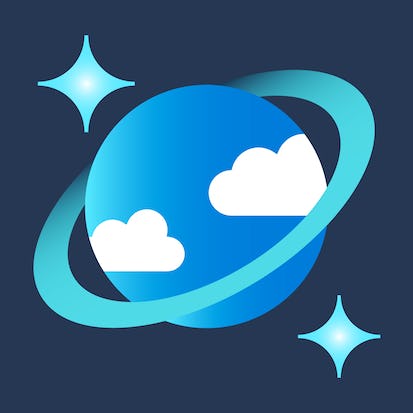- Level Foundation
- Duration 11 hours
- Course by Microsoft
-
Offered by

About
In this course, you will learn the fundamentals of database concepts in a cloud environment, get basic skilling in cloud data services, and build your foundational knowledge of cloud data services within Microsoft Azure. You will explore non-relational data offerings, provisioning and deploying non-relational databases, and non-relational data stores with Microsoft Azure. This is the third course in a program of five courses to help prepare you to take the Exam DP-900: Microsoft Azure Data Fundamentals, so that you can demonstrate that you have a foundational knowledge of the core database concepts in a cloud environment. This course is ideal for IT professionals who want to learn the fundamentals of database concepts in a cloud environment, get basic skilling in cloud data services, and build their foundational knowledge of cloud data services within Microsoft Azure with a view to taking up roles as Data Engineers and Database Administrators. It is also suitable for working database professionals looking for additional skills or credentials to showcase expertise in a cloud environment and IT professionals looking to specialize in the specific area of Azure data. To be successful in this course, you need to have basic computer literacy and proficiency in the English language. Successful Azure Data Fundamentals students start with some basic awareness of computing and Internet concepts, and an interest in extracting insights from data. It is an advantage to have experience using a web browser, familiarity with basic data-related concepts, such as working with tables of data in a spreadsheet, and visualizing data using charts.Modules
Welcome to the Course
1
Discussions
- Meet and greet
1
Videos
- Introduction to non-relational Data in Azure
2
Readings
- Course syllabus
- How to be successful in this course
Non-relational Data offerings in Azure
3
Assignment
- Exercise quiz
- Exercise quiz
- Exercise quiz
6
Videos
- Lesson introduction
- Explore Azure Table storage
- Explore Azure Blob storage
- Explore Azure File storage
- Explore Azure Cosmos DB
- Weekly summary
4
Readings
- Exercise - Create and view a table using the Azure portal
- Exercise - Create and view a block blob using the Azure portal
- Exercise - Create an Azure storage file share using the Azure portal
- Additional readings
2
Quiz
- Knowledge check
- Test prep
Explore Provisioning and Deploying Non-relational Data Services in Microsoft Azure
1
Assignment
- Exercise quiz
9
Videos
- Lesson introduction
- Describe provisioning non-relational data services
- Use Azure CLI or Azure PowerShell to provision Azure Cosmos DB
- Use Azure CLI or Azure PowerShell to create a database and a container
- Provision other non-relational data service
- How to provision Data Lake storage in a storage account
- Describe configuring non-relational data services
- Configure Azure Cosmos DB, and Azure Storage
- Weekly summary
2
Readings
- Exercise: Provision non-relational Azure data services
- Additional readings
2
Quiz
- Knowledge check
- Test prep
Manage non-relational data stores in Microsoft Azure
1
Assignment
- Exercise quiz
6
Videos
- Lesson introduction
- Manage Azure Cosmos DB
- Query Azure Cosmos DB
- Manage Azure Blob storage
- Manage Azure File storage
- Weekly summary
2
Readings
- Exercise: Upload, download, and query data in a non-relational data store
- Additional readings
2
Quiz
- Knowledge check
- Test prep
Course Wrap-Up
1
Discussions
- Course review
1
Readings
- What to expect next
Auto Summary
Discover the fundamentals of database concepts in a cloud environment with the "Microsoft Azure Cosmos DB" course on Coursera. Led by experienced instructors, this foundational course covers cloud data services within Microsoft Azure, focusing on non-relational data offerings and deployment. Ideal for IT professionals, aspiring Data Engineers, and Database Administrators, this 660-minute course is part of a series preparing you for the Exam DP-900: Microsoft Azure Data Fundamentals. Subscription options include Starter and Professional plans. Basic computer literacy and English proficiency are recommended for success.

Microsoft


